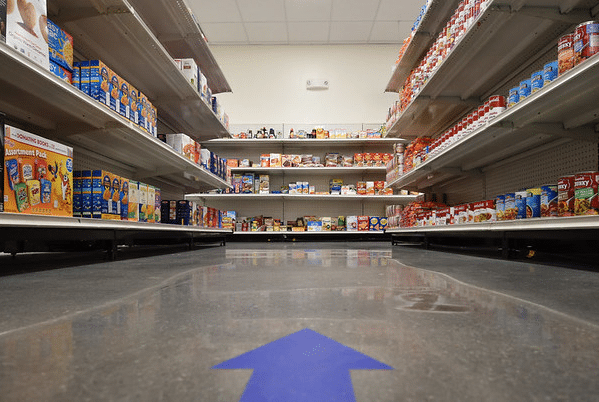
Bargain hunting for expiring food has become a lot easier, with the advent of apps that will help you find the best deals before they end up in the dumpster. But both the bargain hunters and the apps they rely on may be disappointed to learn that researchers have concluded it’s a lot less profitable for stores to sell this food than it is to just give it away.
John Lowrey, Assistant Professor of Supply Chain and Health Sciences at Northeastern University, explained his team’s findings in a recent article. “We found that stores that remove items on the brink of expiration, donate them to food banks and fill up the emptied shelf space with fresher inventory get more revenue from sales and earn higher profits,” he wrote.
That’s good news for retailers, great news for food banks, but not the best news for deal-seekers who haunt the clearance section, look for discount stickers on perishable foods, and the apps that have built a business around connecting shoppers with these deals.
The problem, Lowrey’s team found, is that keeping about-to-expire food and selling it at a discount, takes away shelf space from fresher, full-priced alternatives. And it could give the store a reputation it might not want. “Stocking perishable foods that are starting to look iffy – such as bananas with brown spots sold alongside unblemished yellow bananas – could harm a retailer’s image if shoppers start to question the store’s quality,” Lowrey explains.
Of course, a store doesn’t necessarily have to stock its discounted food products right alongside their fresher counterparts. Many stores have dedicated clearance sections, to separate out the discounted less-desirables from the new products coming in. But clearance sections are typically stocked with nonperishables – it’s less common for a store to keep produce, refrigerated or frozen foods in clearance sections. So it’s more likely that those cut-priced brown bananas are going to be right next to full-priced yellow ones.
So “it may be better for stores if they don’t sell sad-looking bananas and instead just give them away,” the researchers stated. Donating perishable food that’s about to expire increases the average quality of a store’s selection, which attracts more shoppers, and allows the store to sell more to those shoppers at full price, which is much better for the retailer’s bottom line. “Food donations can increase average food prices by up to 1%, which corresponds to a 33% increase in profit margins,” Lowrey wrote.
Too often, perishable foods don’t get donated or discounted, but discarded. So a cottage industry of discount grocery services have cropped up in recent years to help shoppers save while helping to prevent food waste. Flashfood offers an app that allows shoppers to buy discounted soon-to-be-discarded fresh produce, meat and other groceries at thousands of participating retailers, at prices up to half off. A similar app, called Too Good To Go, recently introduced “Surprise Bags” at Whole Foods Market, filled with “surplus” food items that are more than 60% off regular price.
If stores donate more of their “surplus” instead of trying to sell it, that would mean more food for the less fortunate and less food in the trash, which is something few could argue is a bad thing. But it might impact the availability of deals for shoppers, and put a dent in the business model of the apps that help them find those deals.
So, too, might an otherwise well-meaning new law in California, which could result in less food that’s about to expire, by redefining what “about to expire” even means. The new measure, which takes effect in 2026, would streamline and simplify dates stamped on product packages, limiting them to “use by” and “best if used by,” and restricting the use of confusing phrases like “sell by” that suggest some food items are expired when they’re still perfectly safe to eat and sell.
All of this is meant to reduce the billions of pounds of food that goes to waste in the U.S. each year. Selling it at a discount is one way. Donating it is another. And the promise of profits could help retailers decide which is the best option. “Food bank donations are not just altruistic gestures by retailers,” the researchers conclude. Donating “perishable, but unsaleable foods to the food bank is a profit-maximizing strategy that contributes to retailers’ social and financial objectives.”
So more food for the food bank could mean fewer deals at the grocery store. Deal-seekers may not be pleased if grocery stores offer fewer clearance items in order to protect their own profits. But if it means more food for the needy and less food in the trash, that might just be a price that even deal-seekers are willing to pay.
Image source: Maryland GovPics










